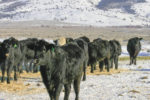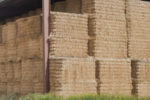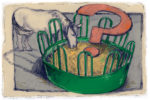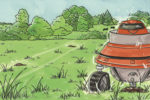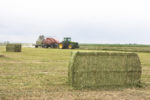Testing Forages
ARTICLES
Are all bales harvested from a single hayfield created equal?
Improper samples contribute to the biggest error in the forage analysis process and result in over- or underfeeding nutrients and prove costly to the animal’s nutrition and health and to your pocketbook.
Read More
New report shows mycotoxins are on the rise in common feed ingredients
Understanding the risks, staying vigilant and implementing proper feed management practices with appropriate additives significantly reduce the impact of mycotoxins on your operation.
Read More
A collaboration for data collection
The goal of the incubator farms is to provide field-sized soil fertility and crop nutrient management research to promote sustainable and efficient practices with producers.
Read More
Putting forage test results to work for your herd
Getting the most out of your feed requires more than a good forage test. Producers need to do all they can to ensure they’re feeding the right hay to the right cow at the right time.
Read More
Hesitation about NIRS evaluation of grass forages
Not only are NIRSC calibrations accurate for the evaluation of grass-type forages, but they successfully combine warm- and cool-season grasses, eliminating the need for separate calibrations.
Read More
Forage sampling and analysis: Can we overemphasize its importance?
As fall and winter approach, producers should know what they expect from their forage. This will allow for more accurate testing and profitable feeding to cattle.
Read More
Myth-busting horse hay
When it comes to hay quality, evaluating the needs of the individual horse is imperative.
Read More
In-field vs. in-lab testing and techniques in the archaic world of soil
While soil testing may be settled on a state-by-state basis, there is still a lot of work that needs to be done for one of these non-lab soil labs to be relevant coast to coast without needing to be reconfigured every time it crosses a state line.
Read More
A better way than crude fiber
Distinguishing between neutral detergent fiber and acid detergent fiber can better predict how forages change nutritionally as they grow and mature.
Read More




